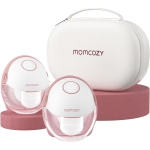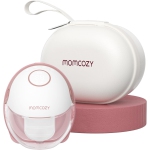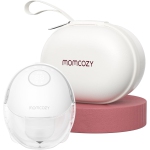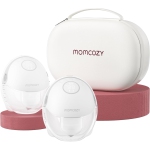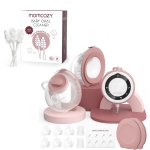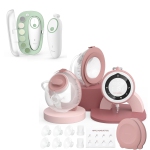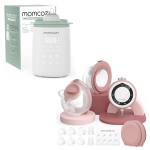FAQ About Breast Pumps
Looking for Black Friday deals on Breast Pumps on Sale? Check our options and get your deal.
Breast is best, as many pediatricians would say, which is why the right breast pump can be handy during those first few weeks or months of nursing. Pumps for breastfeeding help in two significant ways: they afford busy moms the flexibility of being away from their infants for stints or long stretches of time, and allow babies to benefit from mom's milk even when she's not around. Since they can be as important as car seats in your parenting journey, breast pumps come in all shapes and sizes. Get to know the various types, and learn how each one can support your nursing needs.
What should I consider when buying a breast pump?
Breast pumps are designed to meet your specific needs. Will you be returning to work and continue breastfeeding when at home? Do you need to carry the pump to work or daycare every day, or use it mostly for outings? Are you physically unable to breastfeed? Choosing the right pump will help keep the milk flowing, and protect you from infections and plugged ducts, while supporting the level of convenience your lifestyle requires. Also, some pumps with soft breast cups can mimic your baby's tongue motions so the experience feels more comfortable and natural.
Which type of breast pump is right for me?
If you plan to stay at home with baby or are looking to increase your milk supply, a hospital-grade breast pump, while hefty, is fast and efficient. If pressed for time, choose pumps that work on both breasts at once. A manual pump is convenient if only pumping occasionally, while lightweight, battery-operated versions with fewer parts to clean are ideal for travel. Some pumps allow for hands-free operation so you can multitask, or use discreetly while in public, with cups that can slide under your bra and connect to the pump.
While you can use both electric-powered and manual pumps, one for doing the bulk of the pumping, and the other for portable use, it's best to know how each type suits your needs.
Electric- or Battery-Powered Pumps
Heavy duty models are electric powerhouses, drawing milk from your breasts at about the same rate as a nursing baby. Some come with a double collection kit for pumping both breasts at once, effectively cutting pumping time in half.
Top-end personal-use pumps combine the efficiency of a heavy duty version and the convenience of a portable one. Great for moms working full time or who can't nurse regularly, these pumps offer fully automatic functions or adjustable suction levels, and can run on a car's cigarette lighter (adapter may be sold separately) or built-in battery pack. Some come with breast pump accessories such as a carrying case, bottles, labels, and more.
Midrange versions are good for shorter stints of separation, like when you're leaving your child with another family member or babysitter while you run errands. They tend to be lighter and more affordable than higher-end models.
Manual Pumps
As the name implies, manual pumps are operated by hand using a piston, bulb or lever. They're simple to use and convenient in size, and allow the pumping action to feel more natural when you can control the suction yourself. While slower than pumps running on an electrical source or batteries, manual versions are ideal for pumping on the go.
